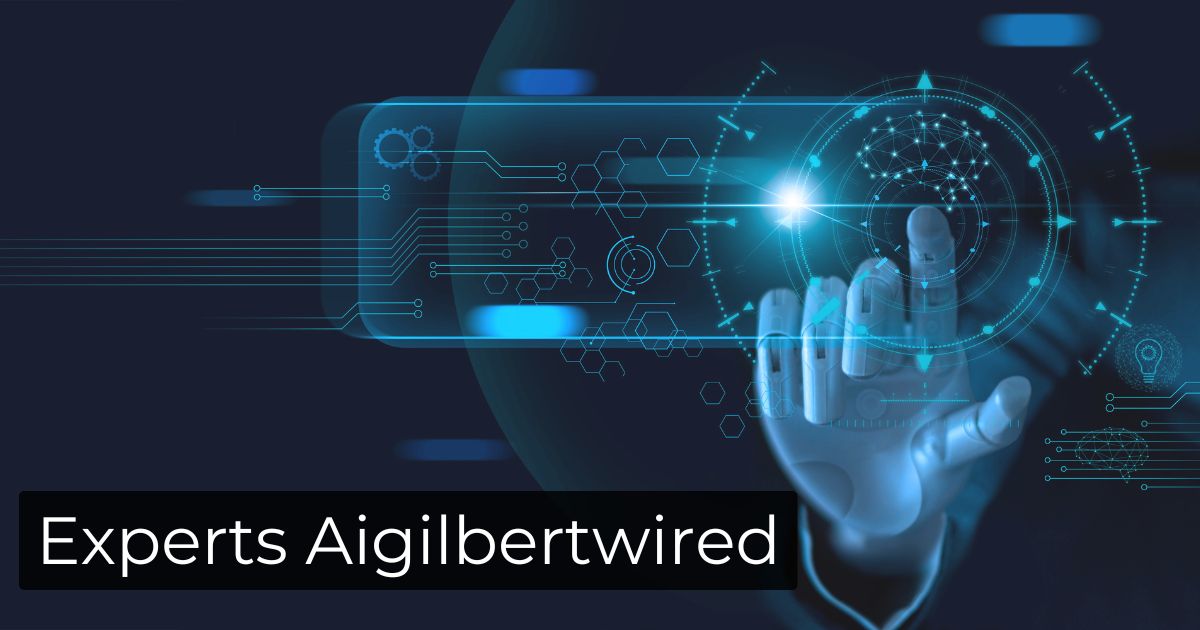Standards Test Keeper AI is an innovative tool designed to enhance compliance management. It automates standards testing processes, making them faster and more accurate. This technology is essential for organizations aiming to meet industry standards efficiently.
By integrating artificial intelligence, this system replaces traditional methods with automated processes. It provides real-time insights and detailed reports, ensuring compliance with regulations.
Importance of Compliance in Modern Industries
Compliance is a critical aspect of today’s industries. It ensures that organizations adhere to legal standards and avoid potential legal issues. Effective compliance management is essential for preventing fines and enhancing operational efficiency.
Industries like manufacturing, healthcare, and finance face rigorous regulations. Meeting these standards is crucial for maintaining quality and safety. Advanced tools like Standards Test Keeper AI simplify compliance management.
How Standards Test Keeper AI Works
Automated Testing Processes
The AI system automates various testing processes, from execution to result analysis. This automation reduces the need for manual intervention, accelerating compliance checks. By performing multiple tests simultaneously, it ensures comprehensive coverage.
The system generates reports automatically, offering insights into compliance status and performance. This streamlining of tasks improves efficiency and accuracy.
Real-Time Analytics and Reporting
Standards Test Keeper AI provides real-time analytics and reporting capabilities. Continuous monitoring of compliance is made possible with this feature. Real-time data helps in promptly identifying and addressing issues.
The detailed reports produced offer valuable insights into testing results and compliance trends. This helps organizations make informed decisions and refine their processes.
Integration with Existing Systems
The system integrates smoothly with existing infrastructure. This integration minimizes disruption during the transition from traditional methods. By connecting with tools such as ERP and QMS, it enhances overall efficiency.
Seamless integration allows organizations to benefit from AI’s capabilities while maintaining their current workflows.
Case Study: Successful Implementation
A prominent manufacturing company implemented Standards Test Keeper AI to address compliance challenges. Before adopting the system, manual testing was slow and prone to errors. The AI system automated these processes, resulting in faster and more accurate results.
The company observed substantial benefits, including reduced operational costs and improved product quality. The AI solution streamlined compliance management and provided actionable analytics.
Challenges and Considerations
Technical Challenges in Implementing AI
Implementing Standards Test Keeper AI can involve technical challenges. Integrating AI with existing systems may require adjustments. Compatibility and technical support are crucial for a smooth implementation.
Training staff to use the new system effectively is also important. Adequate preparation and support can help overcome these challenges.
Data Privacy and Security Concerns
Data privacy and security are key considerations for using AI technology. The system handles sensitive compliance information, necessitating strong security measures. Encryption, access controls, and regular audits are essential to safeguard this data.
Ensuring compliance with data protection regulations helps maintain trust and integrity.
Overcoming Resistance to Change
Resistance to new technology is common. Employees may have concerns about job displacement or adapting to unfamiliar systems. Clear communication about the benefits of Standards Test Keeper AI can help address these issues.
Providing adequate training and support will ease the transition. Highlighting the positive impacts of the system on compliance management can foster acceptance.
Also Read: What Does TTM Mean in Instagram
Industry Applications of Standards Test Keeper AI
Manufacturing Sector
In manufacturing, this AI technology ensures product quality and regulatory compliance. It automates testing of materials and products, leading to faster production cycles and fewer defects.
The system helps manufacturers meet industry standards such as ISO, enhancing product reliability and compliance.
Software Development and IT
For software development and IT, Standards Test Keeper AI supports quality and compliance management. It automates software testing, ensuring applications meet performance and functional requirements.
AI-driven tools handle complex testing scenarios, speeding up release cycles and improving software quality.
Regulatory and Compliance Industries
In regulatory sectors, the AI system simplifies adherence to standards. It automates compliance testing and provides comprehensive reporting. This is vital for industries like healthcare, finance, and pharmaceuticals.
By managing regulatory standards effectively, the AI solution helps organizations avoid penalties and maintain safety.
Future Trends and Innovations
Upcoming Features in AI Testing Tools
Future developments for AI in standards testing include advanced algorithms and improved machine learning capabilities. Enhancements in data visualization and user interfaces are also anticipated.
These innovations will drive further advancements in compliance management, offering organizations more powerful tools.
Predictions for AI in Standards Testing
The role of AI in standards testing is expected to grow. Future advancements will make AI systems more sophisticated and capable. Improved automation, integration, and real-time insights will enhance compliance management.
AI will play a crucial role in handling complex testing scenarios and adapting to evolving regulations.
Impact on Industry Standards and Regulations
AI will influence industry standards and regulations. As AI-driven testing becomes more common, standards may evolve to incorporate new technological capabilities. This will lead to more dynamic compliance frameworks.
AI integration will shape new standards, impacting how industries approach compliance.
Best Practices for Implementing AI Solutions
Steps for Successful Deployment
Successful deployment of Standards Test Keeper AI starts with assessing current processes. Identify where AI can add value and develop a clear implementation plan. Integrate the system with existing workflows and provide training for staff.
Ongoing support and monitoring are vital for effective operation.
Training and Support for Users
Effective training is essential for using AI systems. Provide comprehensive training to help users understand the system’s features. Support resources, such as manuals and tutorials, will aid in the transition.
Regular updates and refresher training will keep users informed about new features and best practices.
Continuous Improvement and Feedback
Continuous improvement is key to maintaining the effectiveness of AI systems. Regularly review the system’s performance and gather user feedback. Identify areas for enhancement and make necessary adjustments.
A feedback loop helps address issues and refine the system, ensuring it meets evolving needs.
Comparative Analysis
AI vs. Traditional Methods
AI offers significant advantages over traditional testing methods. While traditional methods are manual and time-consuming, AI automates testing for faster, more accurate results. This reduces paperwork and manual data handling.
The efficiency of AI in standards testing makes it a valuable modern tool.
AI vs. Other Testing Tools
Compared to other AI testing tools, Standards Test Keeper AI specializes in compliance management. While other tools may offer general testing capabilities, this system focuses on standards testing.
Its comprehensive features and integration capabilities differentiate it from more generic AI solutions.
User Experiences and Testimonials
Case Studies from Various Industries
Case studies demonstrate the impact of AI across industries. For instance, a pharmaceutical company improved its regulatory testing with AI, achieving better accuracy and efficiency. A software firm benefited from the AI’s automation, resulting in faster release cycles and higher-quality software.
User Feedback and Reviews
Users of Standards Test Keeper AI report positive experiences. They appreciate the system’s ease of use, accuracy, and efficiency. The transition from traditional methods to AI-driven testing has been smooth for many, with minimal disruption.
Success Stories and Lessons Learned
Success stories highlight the benefits of AI, such as increased efficiency and cost savings. Lessons learned emphasize the importance of planning, training, and support. Organizations that approach adoption strategically are more likely to succeed.
Cost-Benefit Analysis
Initial Investment vs. Long-Term Savings
The initial investment in AI may be high, but the long-term savings and benefits often outweigh the costs. Automation reduces labor costs and improves compliance, leading to significant savings over time.
A positive return on investment is expected through enhanced efficiency and reduced risk of compliance violations.
Return on Investment (ROI) Metrics
To measure ROI, evaluate cost savings, accuracy improvements, and compliance performance. Financial analysis, performance reports, and user feedback help assess the system’s value.
Tracking these metrics guides decisions about AI investment and optimization.
Evaluating Cost-Effectiveness
Assessing cost-effectiveness involves comparing AI benefits to its costs. Consider factors such as improved efficiency, accuracy, and compliance. A thorough cost-benefit analysis helps determine the system’s value.
Conclusion
Standards Test Keeper AI is transforming compliance management with automation, accuracy, and efficiency. The system integrates with existing workflows and provides real-time insights and detailed reports.
Despite some challenges, the benefits include improved compliance, reduced costs, and enhanced operational efficiency.
The future of AI in standards testing is promising. Advances in technology will enhance capabilities and impact. AI will continue to play a crucial role in managing complex testing scenarios and adapting to regulatory changes.
Standards Test Keeper AI represents a significant shift in compliance management. Its automation and integration capabilities make it a valuable asset. Embracing AI-driven solutions will help organizations stay ahead in a dynamic regulatory environment and achieve greater success in compliance efforts.










